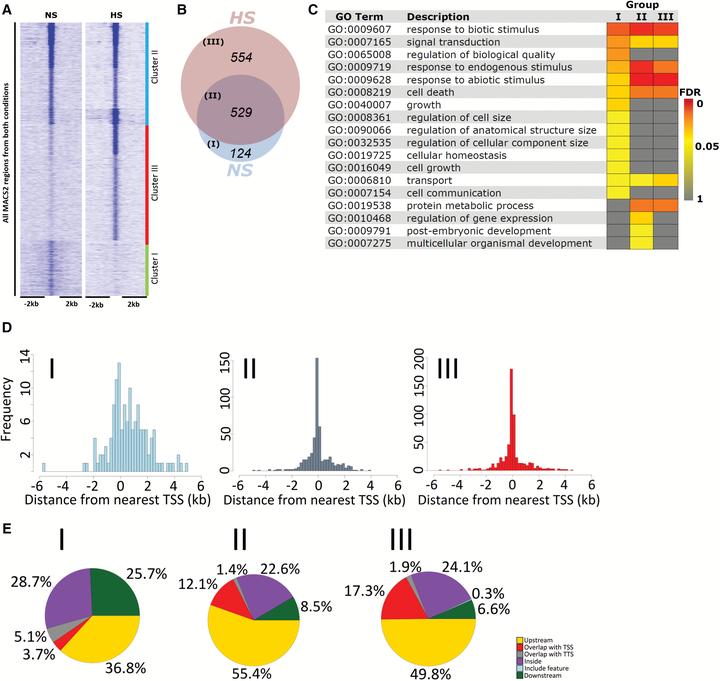Arabidopsis HEAT SHOCK TRANSCRIPTION FACTORA1b regulates multiple developmental genes under benign and stress conditions

Abstract
In Arabidopsis thaliana, HEAT SHOCK TRANSCRIPTION FACTORA1b (HSFA1b) controls resistance to environmental stress and is a determinant of reproductive fitness by influencing seed yield. To understand how HSFA1b achieves this, we surveyed its genome-wide targets (ChIP-seq) and its impact on the transcriptome (RNA-seq) under non-stress (NS), heat stress (HS) in the wild type, and in HSFA1b-overexpressing plants under NS. A total of 952 differentially expressed HSFA1b-targeted genes were identified, of which at least 85 are development associated and were bound predominantly under NS. A further 1780 genes were differentially expressed but not bound by HSFA1b, of which 281 were classified as having development-associated functions. These genes are indirectly regulated through a hierarchical network of 27 transcription factors (TFs). Furthermore, we identified 480 natural antisense non-coding RNA (cisNAT) genes bound by HSFA1b, defining a further mode of indirect regulation. Finally, HSFA1b-targeted genomic features not only harboured heat shock elements, but also MADS box, LEAFY, and G-Box promoter motifs. This revealed that HSFA1b is one of eight TFs that target a common group of stress defence and developmental genes. We propose that HSFA1b transduces environmental cues to many stress tolerance and developmental genes to allow plants to adjust their growth and development continually in a varying environment.